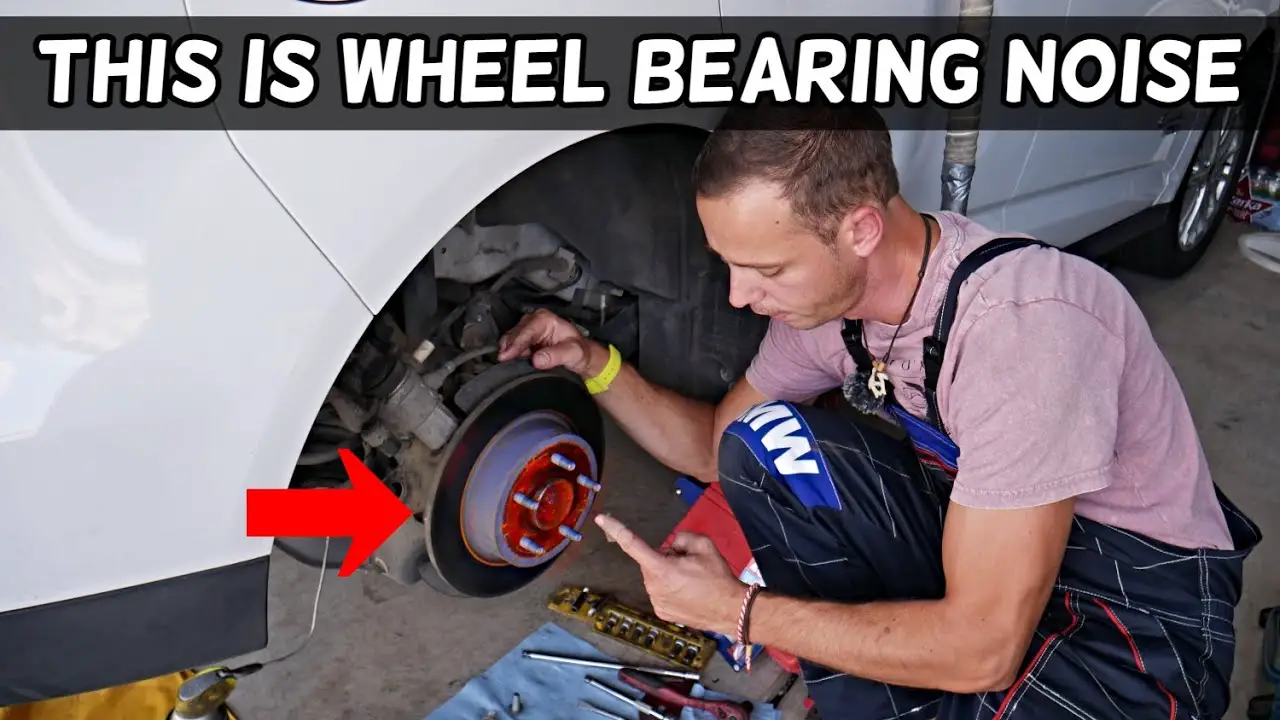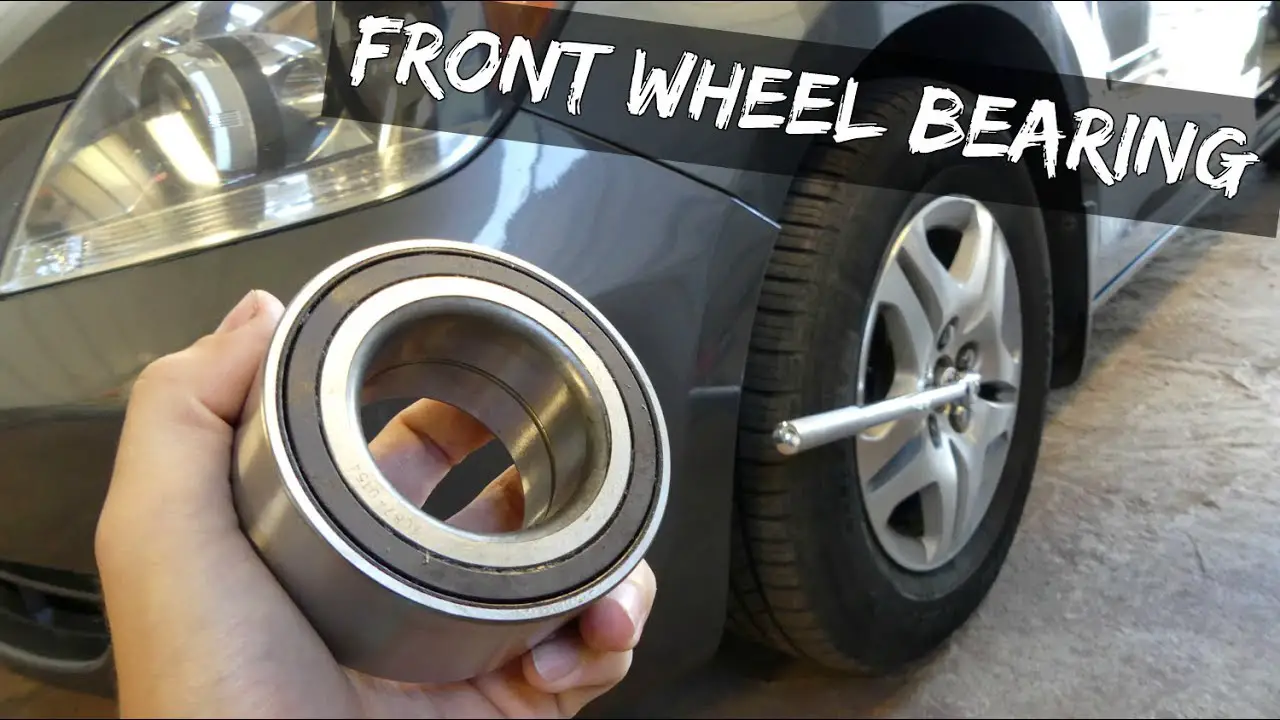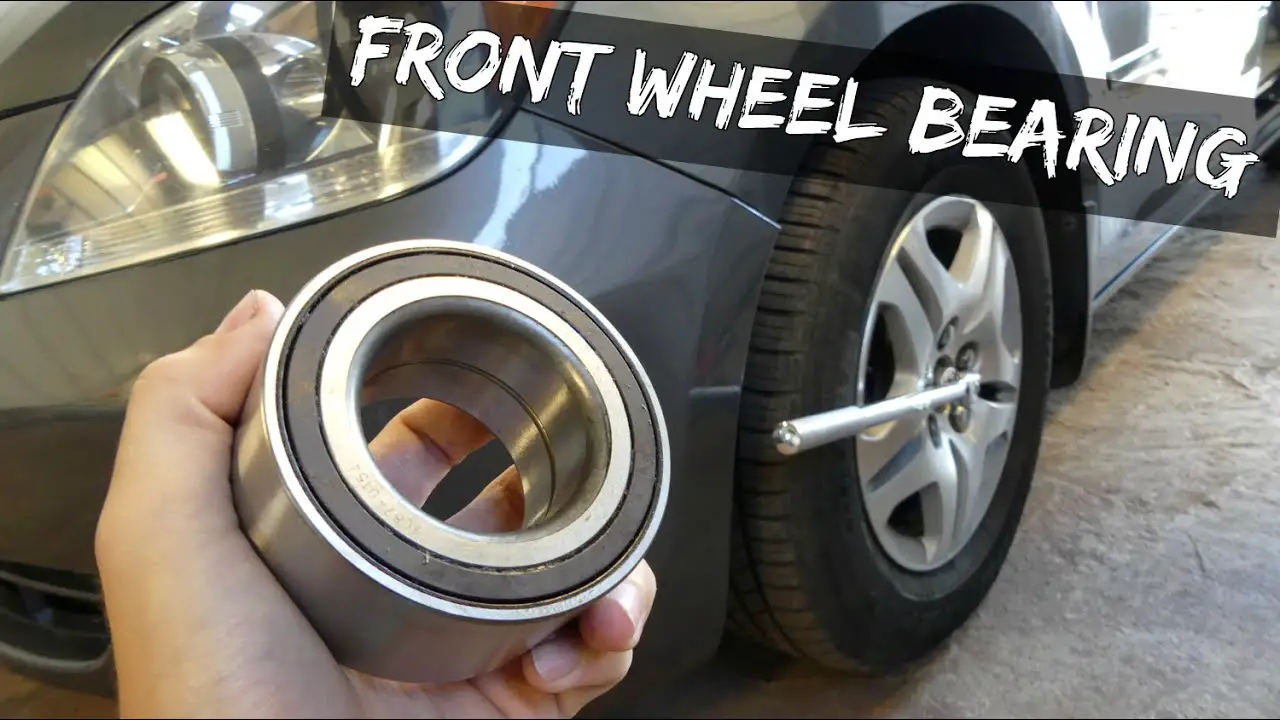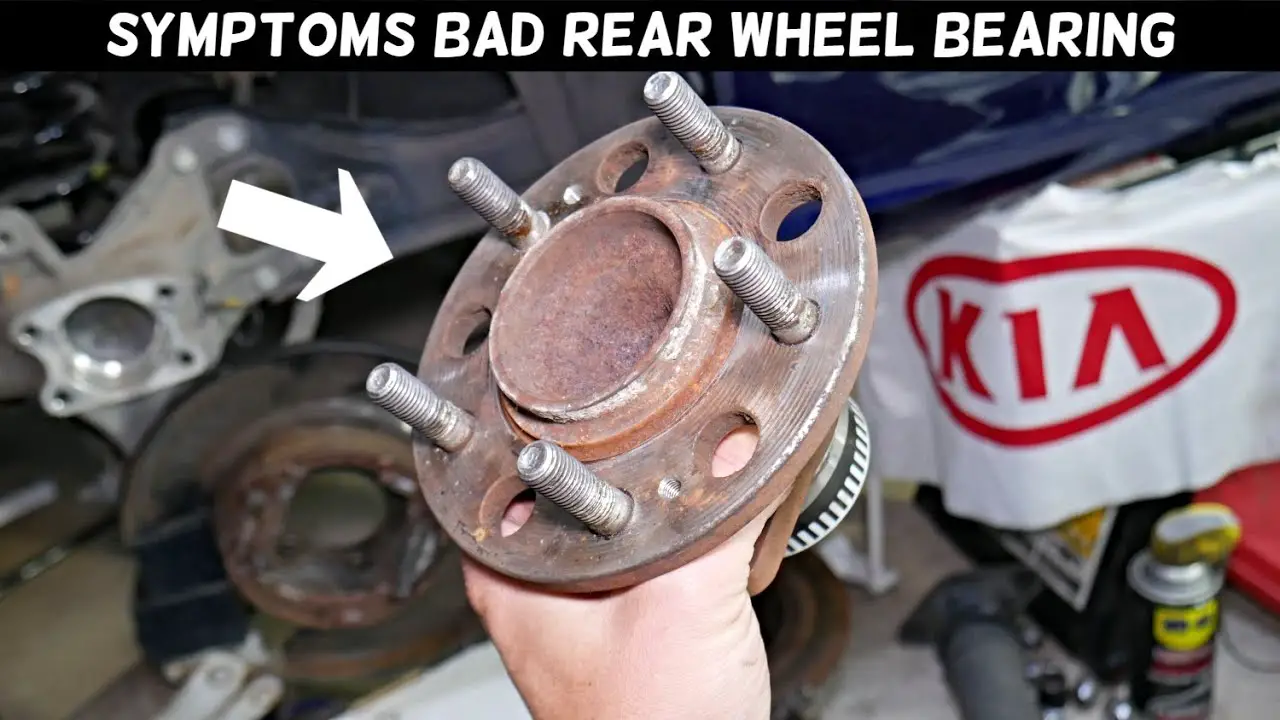Wheel bearing noise is a common sign of a faulty wheel bearing. It typically sounds like a humming or growling noise that increases with vehicle speed.
This noise can indicate that the wheel bearing is worn out or damaged, and it’s important to address it promptly to prevent further issues and ensure safety on the road. When driving, a faulty wheel bearing can produce a noticeable humming or growling noise that correlates with the vehicle’s speed.
This sound may change pitch or intensity during turns. Ignoring this symptom can lead to more severe damage and compromise the safety of the vehicle. Therefore, it’s essential to address any unusual noise promptly to prevent potential hazards and costly repairs.

Credit: www.youtube.com
Contents
Identifying Wheel Bearing Noise
Identifying wheel bearing noise is crucial for maintaining the safety and performance of your vehicle. The wheel bearings are essential components that enable smooth rotation of the wheels, and when they start to wear out, they can produce distinctive noises that serve as warning signs of potential issues.
Common Signs And Symptoms
One of the most common signs of a faulty wheel bearing is a grinding or grating noise that increases with the speed of the vehicle. Additionally, you may notice excessive play or looseness in the wheel when it is jacked up off the ground.
Another indicator is a humming or rumbling sound that becomes more noticeable as you make turns. Furthermore, a knocking or clunking noise while driving over bumps can also point to potential wheel bearing issues.
Distinguishing From Other Vehicle Noises
When trying to identify wheel bearing noise, it’s important to differentiate it from other vehicle sounds. For instance, tire noise can often be mistaken for wheel bearing noise. However, tire noise typically changes with road surface and can be more pronounced at certain speeds, whereas wheel bearing noise remains relatively consistent.
Additionally, brake issues can also produce similar sounds, but they are usually accompanied by braking vibrations or pulling. By paying attention to the specific characteristics of the noise and how it changes in different driving conditions, you can effectively distinguish wheel bearing noise from other vehicle-related sounds.
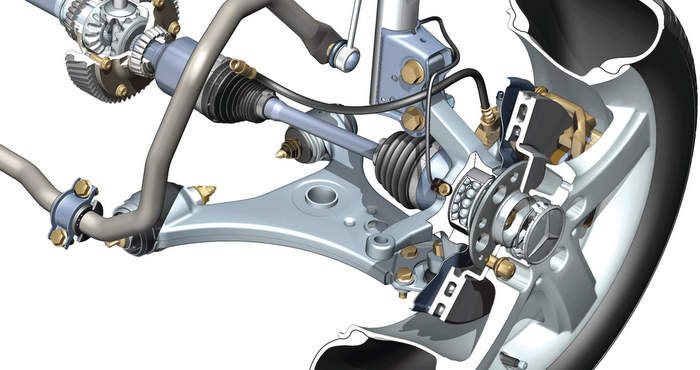
Credit: www.brakeandfrontend.com
Causes Of Wheel Bearing Noise
Wheel bearing noise can be a frustrating and potentially dangerous issue for car owners. It not only affects the overall driving experience but also indicates potential problems with the vehicle’s suspension system.
Wear And Tear Over Time
One of the primary causes of wheel bearing noise is wear and tear over time. Wheel bearings are subjected to constant stress and friction as they support the weight of the vehicle and facilitate smooth rotation of the wheels. Over time, the lubrication in the bearings may deteriorate, resulting in metal-to-metal contact and increased noise.
Factors such as high mileage, driving on rough roads, and inadequate maintenance can accelerate the wear and tear process. Additionally, exposure to extreme temperatures and harsh weather conditions can also contribute to the degradation of the wheel bearings.
Impact Damage And Misalignment
Another common cause of wheel bearing noise is impact damage and misalignment. When a vehicle hits a pothole, curb, or any other object with force, it can cause the wheel bearings to become damaged or misaligned. This can lead to irregular wear and tear, resulting in noise during wheel rotation.
Furthermore, improper installation of the wheel bearings or incorrect adjustment of the suspension system can also cause misalignment, leading to wheel bearing noise. It is essential to ensure that the wheel bearings are installed correctly and the suspension components are properly aligned to prevent such issues.
Silencing The Rumble: Expert Tips
When it comes to wheel bearing noise, taking the necessary steps to address the issue can save you from potential safety hazards and costly repairs. In this section, we will discuss expert tips to silence the rumble and ensure your vehicle’s wheel bearings are in top shape.
Regular Maintenance And Inspections
Regular maintenance and inspections are crucial in preventing wheel bearing noise and prolonging the lifespan of your bearings. By following these expert tips, you can keep your bearings running smoothly:
- Check for Play: Periodically inspect your wheel bearings for any excessive play or looseness. This can be done by lifting the vehicle and attempting to move the wheel from side to side. If there is noticeable movement, it may indicate a worn-out bearing.
- Listen for Unusual Sounds: Pay attention to any strange noises coming from the wheels while driving. A rumbling or grinding noise can be a sign of a faulty wheel bearing.
- Monitor Wheel Temperature: After a long drive, touch the center of each wheel to check for excessive heat. Overheating can indicate a failing bearing.
- Follow Manufacturer’s Recommendations: Adhere to the recommended maintenance schedule provided by your vehicle’s manufacturer. This typically includes regular inspections and bearing greasing.
Professional Repair And Replacement Options
If you suspect wheel bearing noise or have identified a faulty bearing during your inspections, it’s essential to seek professional assistance for repair or wheel bearing replacement. Here are some options to consider:
- Consult a Trusted Mechanic: Reach out to an experienced mechanic who specializes in wheel bearings. They can accurately diagnose the issue and recommend the appropriate repair.
- Consider OEM Parts: Original Equipment Manufacturer (OEM) parts are specifically designed for your vehicle’s make and model, ensuring the highest quality and compatibility.
- Choose a Reputable Repair Shop: Research and select a reliable repair shop with a good reputation. Read reviews and ask for recommendations to ensure a high-quality repair or replacement job.

Credit: www.freeasestudyguides.com
Frequently Asked Questions
Here are some FAQs about wheel bearing noise –
What Does A Wheel Bearing Sound Like When It’s Going Out?
A wheel bearing going out sounds like a loud, constant humming or growling noise. It may get louder when turning.
How Much Does It Cost To Fix Wheel Bearing Noise?
The cost to fix wheel bearing noise varies depending on the make and model of the vehicle. On average, it can cost anywhere from $300 to $500 per wheel. It’s important to have the issue fixed as soon as possible to avoid further damage to the vehicle.
What Are The Signs Of Wheel Bearing Going?
Signs of a failing wheel bearing include a grinding or humming noise coming from the wheels, vibration or wobbling while driving, uneven tire wear, pulling to one side while driving, and the steering wheel feeling loose. It’s important to have a mechanic inspect and replace any worn or damaged wheel bearings to prevent further damage or accidents.
How Serious Is Wheel Bearing Noise?
Wheel bearing noise is a serious issue that needs immediate attention. Ignoring it can lead to wheel damage and unsafe driving conditions. It’s important to have a professional inspect and repair the wheel bearings to ensure safety and prevent further damage to the vehicle.
Conclusion
Addressing wheel bearing noise is crucial for vehicle safety and performance. Regular maintenance and prompt repairs can prevent costly damage. By being attentive to unusual sounds, you can ensure a smoother and safer driving experience. Don’t ignore the signs – prioritize your wheel bearings for a smooth ride.

